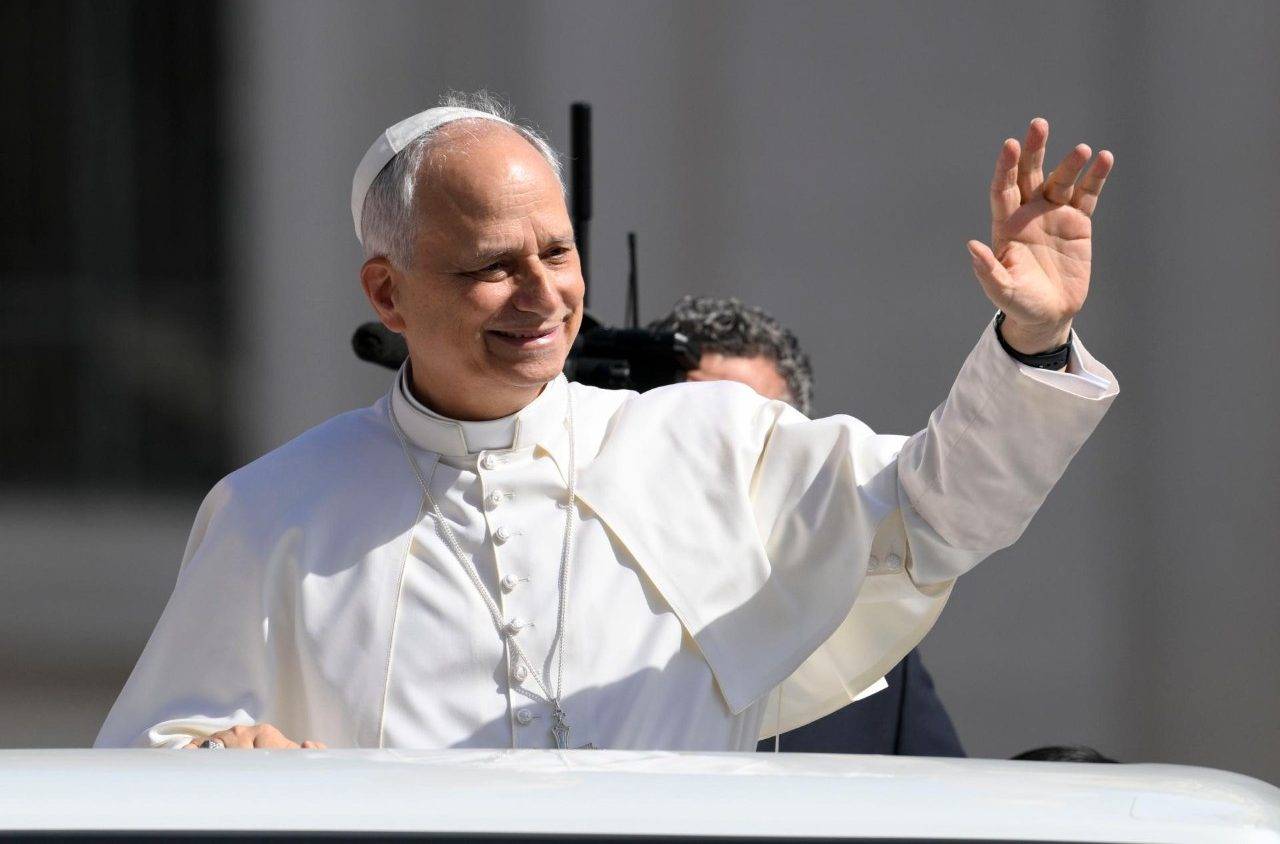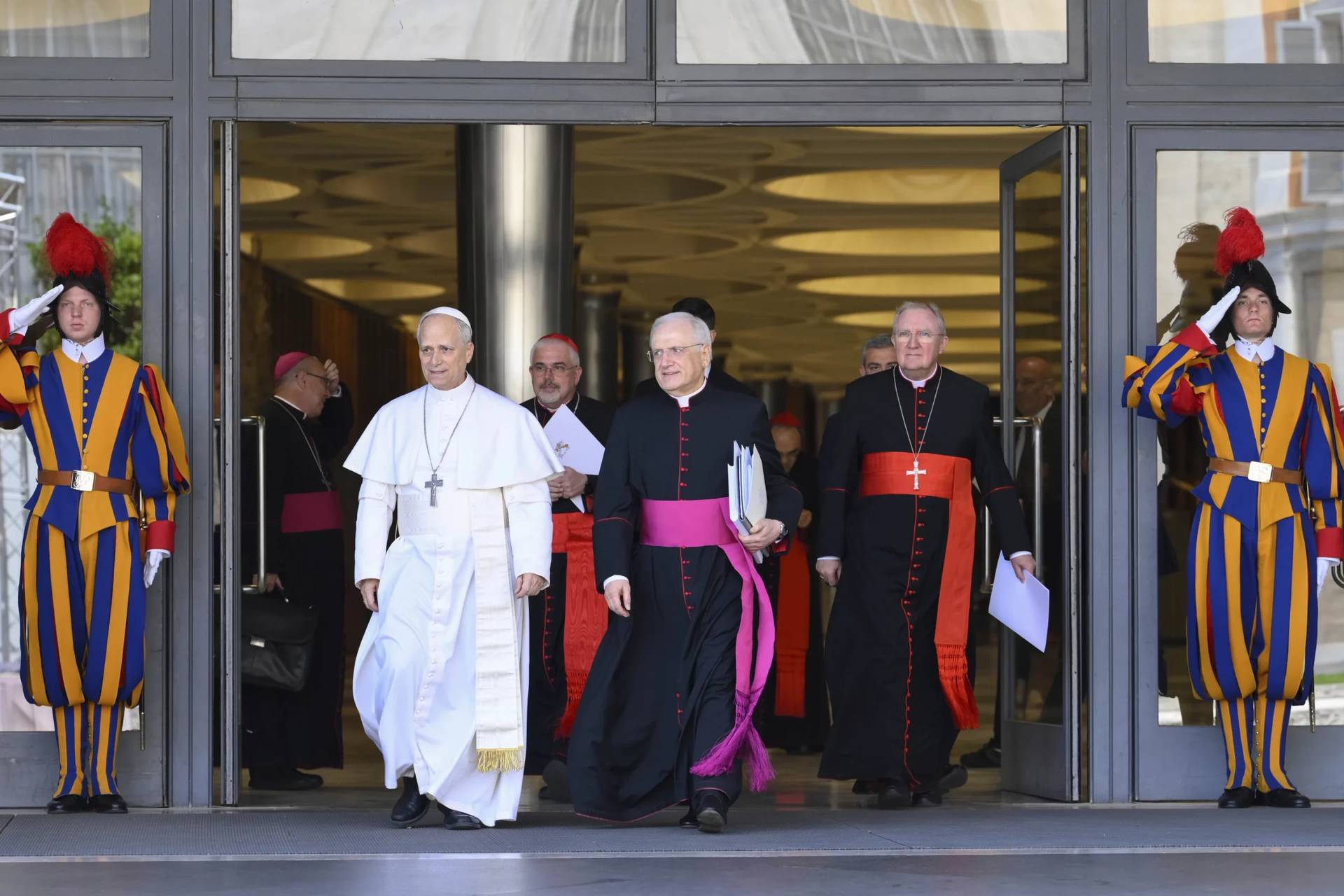To say that Catholic leaders, both in the United States and Rome, have their issues on a variety of fronts with President Donald Trump would be to raise understatement to the level of art. Yet one area where, so far, there’s been a basic meeting of minds, at least rhetorically, is on the importance of promoting and defending religious freedom.
In part because of that, release of the first U.S. State Department International Freedom Report in the era of Trump and Secretary of State Rex Tillerson on Tuesday aroused more-than-usual levels of curiosity, especially among people eager to see if there would be any dramatic departure or new direction.
In all honesty, such expectations were probably always overwrought: The State Department is a massive bureaucracy, one that doesn’t turn on a dime no matter who’s in the White House, and anyway, work on this report was all but wrapped up before the change in administrations.
“This is basically a State Department document,” Jesuit Father Thomas Reese, a member and former chair of the independent U.S. Commission on International Religious Freedom, told me on Tuesday.
“I’d be very surprised if there was any influence from the White House,” he said.
Tom Farr, President of the Religious Freedom Institute and Director of Georgetown’s Religious Freedom Research Project, said on Tuesday there’s not much “strikingly different” in this document from previous administrations, though he lauded it as a “thorough and sound” description of the problem in almost 200 countries.
On balance, advocates of religious freedom found a fair bit to like.
Above all, many said Secretary of State Rex Tillerson’s unwavering language on ISIS as a perpetrator of genocide marked a significant advance. Former Secretary of State John Kerry had declared ISIS guilty of genocide too, but with the caveat that it was a “personal” belief.
Tillerson, however, said it was an official State Department finding, after what he called the “application of law to the facts at hand.” ISIS, Tillerson said, is “clearly responsible for genocide against Yazidis, Christians, and Shia Muslims.”
“It was good to see them, in this very unqualified way, declare ISIS as perpetrating genocide, not couched in any personal opinion or anything like that,” said Edward Clancy, director of outreach and evangelization for Aid to the Church in Need-USA, a pontifical body that assists persecuted Christians around the world.
Clancy told Crux that Tillerson’s no “ifs, ands or buts” approach to ISIS was probably the “big highlight” of Tuesday’s report.
Also, given Trump’s foreign policy moves to date, featuring far friendlier approaches than under Obama to strong-handed global leaders such as Xi Jinping of China, King Salman bin Abdul-Aziz of Saudi Arabia, Abdel Fattah el-Sisi of Egypt, and Recep Tayyip Erdogan of Turkey – not to mention, of course, Russia’s Vladimir Putin – it was striking to see the report denounce religious freedom abuses in each one of those countries, in detailed and explicit terms.
In that sense, if there were fears the State Department might play favorites or pull its punches when it comes to religious freedom, they may be somewhat allayed. (Although Russia wasn’t added to a list of “Countries of Particular Concern,” as recommended by the independent commission.)
“I was impressed with Tillerson,” Reese said.
There were also, however, elements of the report that left some disappointed. Beyond Russia, the independent commission also had recommended adding the Central African Republic, Nigeria, Pakistan, Syria and Vietnam among “countries of particular concern,” but that didn’t happen either.
In particular, Clancy said he was puzzled about the omission of Pakistan, saying that felt almost “automatic.” Reese was a bit more sympathetic, acknowledging that the State Department has to balance religious freedom concerns against other national security interests, especially Pakistan’s role in the fight against Islamic terrorist groups and the fact that it’s a nuclear power.
Most basically, in the eyes of most veteran observers, is that the latest edition of the religious freedom report still leaves unanswered the question that’s haunted the enterprise since it began in 1998: Now that we’ve identified the problem, what are we going to do about it?
Many observers say that if Trump or anybody else is truly serious about making religious freedom a “cornerstone” of American foreign policy, it would mean at least three things.
First, they say, it would mean an occasional willingness to impose meaningful sanctions on offending parties.
U.S. Rep. Chris Smith of New Jersey, a Republican who chairs a House panel on global human rights and is one of Congress’s most outspoken members on religious freedom, praised Tillerson’s language on ISIS on Tuesday and said it’s a “step in the right direction” that the report flags abuses in nations such as Vietnam, Pakistan, Nigeria and Syria.
Yet, Smith said, “The more difficult step will be to place these countries or non-state actors like ISIS and Boko Haram on the U.S. blacklist of severe religious freedom violators,” meaning “countries of particular concern” deemed guilty of “particularly severe violations of religious freedom.
“Such designations could include sanctions,” Smith added, suggesting he’d like to see a more robust use of the authority to do just that granted under the 1998 act.
Not everyone believes sanctions are the appropriate instrument, but the idea is to find ways to express disapproval that go beyond the merely rhetorical.
Second, religious-freedom-as-cornerstone would mean taking seriously, as Tillerson repeated on Tuesday, that religious freedom isn’t just a moral imperative, but a national security priority.
“Countries that effectively safeguard this human right are more stable, economically vibrant, and peaceful,” Tillerson said. “The failure of governments to protect this right breeds instability, terrorism, and violence.”
Farr says if we believe that, we need to put our money where our mouth is.
“For example, we should be training our diplomats, and funding programs, that present self-interest arguments to governments and stakeholders who now view religious freedom as a threat, or a Trojan horse,” Farr said.
“We need a comprehensive international religious freedom strategy integrated into our national security strategy,” Farr said. “We don’t now have anything approaching such a strategy.”
Third, observers say a real focus on religious freedom would also mean serious efforts to aid victims of persecution when it occurs, and also to deploy American influence going forward so they’re not put in harm’s way again.
Clancy says that above all, the “test case” of that commitment right now is playing out in Iraq and Syria.
“We should provide direct support of minority groups who are trying to help themselves, in a sense to replant themselves, back into places where they have a long history,” he said. “We also need to use the wherewithal of the United States to say to Iraq and Syria, ‘We insist on these things happening, these people can’t just be cast aside’.”
Christians in Iraq in particular, Clancy warned, face a “tough uphill battle if they don’t have a strong ally in the U.S.
“Are we willing to do that,” he asked, “to use the pressure necessary to guarantee these people freedom and peace?”
Farr suggested that much will depend on former Kansas Governor Sam Brownback in his new role as United States Ambassador-at-Large for International Religious Freedom, including the extent to which he’s able to wield influence within the Trump White House.
“Brownback is key,” Farr said.
Clancy also offered a call to vigilance.
“They’ve made these promises,” he said, referring to the Trump team. “Now we need to hold their feet to the fire, to make sure they’re kept.”
Reese said he thinks hope for doing that rests with one constituency above all.
“It’s his evangelical base,” Reese said. “It’s as simple as that.”














